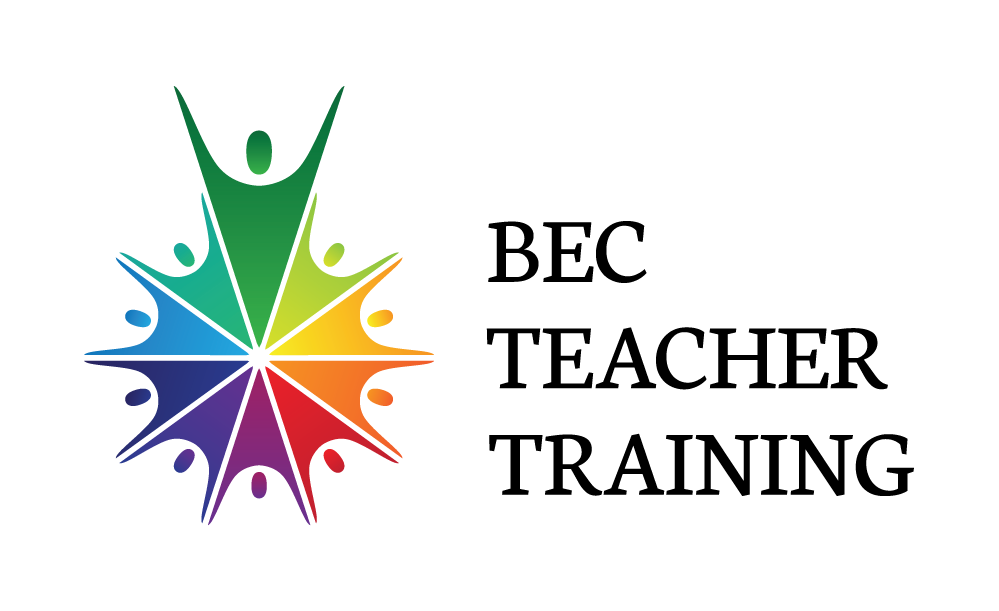Could you train to teach English? Have you got what it takes to become a truly inspirational English teacher? At BEC Teacher Training we know that English is one of the most important and complex subjects taught in secondary school, and we see how our trainee teachers relish the opportunity to expand the students’ horizons, engage them with challenging concepts and encourage them to express themselves creatively. We decided to find out more about what makes teaching English to teenagers so uniquely fulfilling.
We talked first to Amy, who is a senior teacher of English in a large Essex comprehensive. She told us one of the most important aspects of English in the school curriculum is that it is an essential facilitating subject. Students need to be able to express their ideas cogently in classroom discussions, read and understand complex texts and organise their written responses effectively to succeed in subjects as diverse as Computing and Chemistry. Yet it’s not just that without high levels of literacy, her students can’t access other areas of the curriculum, but also that the themes and ideas discussed when studying literature illuminate all the other curriculum areas. What better than the poetry of Wilfred Owen to help History students understand the horror of trench warfare, what could be more effective than reading Frankenstein when exploring the ethical use of technology?
Even more crucial though, in Amy’s view, is the way the study of literature helps students to explore in detail ideas that are relevant to their lives. Literature is a window into another world and an opportunity to engage in dialogue with people from other times or with very different experiences. This broadening of their horizons isn’t just eye-opening for students, it can also be very liberating as well as provide a stimulus to help them express their own thoughts and ideas. It is vital to choose the texts to study carefully, says Amy. There is such a huge range of options, it is essential to plan across the whole school curriculum to make sure that themes are explored and revisited in different contexts so that students develop into sophisticated readers.

Exploring challenging themes with students is central to English Teaching
In helping students to understand why writers have chosen their themes and how they advocate for them. English teachers also ensure students develop a richer understanding of their society and their place in it. Of course, tackling challenging texts with young people means that teachers have to think carefully about how to approach key themes sensitively and with respect for fundamental values. Amy recently studied ‘The Hate U Give’ with her class, which provided an excellent opportunity to discuss current issues raised by the Black Lives Matter movement but also presented challenges, as she had to consider carefully how to tackle the adult themes with the group.
Giving students the power to express themselves creatively is another vital aspect of English teaching according to Keely, another highly experienced English teacher who is also our Secondary Course Director here at BEC Teacher Training. Young people really enjoy using their imaginations, she tells us, and thrive when empowered to express themselves effectively by skilful teaching. A recent piece of work where the youngsters were asked to create a monologue in the character of a villain, for example, produced some impressive and moving personal responses from students. Amy agrees that it is exciting to use the study of texts to help students explore the writer’s craft and then devise stimulating tasks that allow them to experiment with the techniques they have learnt to develop their own unique ideas. Having recently invited her students to write in response to a picture as a voluntary extension task, she was overwhelmed by the quality and sensitivity of the work submitted, especially a piece by one 15 years old boy. She commented: ‘It takes time to build an environment where teenagers feel comfortable and confident expressing their feelings in front of others, but it is absolutely worth it.’
The opportunity to share your own love of literature and inspire young people is another key aspect that drives Maddie, who successfully completed a PGCE with BEC Teacher Training last year and is now teaching English in one of our partnership schools. She tells us that the students’ enthusiasm often extends beyond the classroom and that she regularly ends up chatting through break times, sharing ideas with young people about their favourite books. Maddie is also passionate about the importance of developing speaking skills, another major aspect of the English teacher’s role. Having set up a very successful debating club, which she managed to run effectively even online in lockdown, she has recently accepted an extended role as Debate and Oracy Lead and is looking forward to developing ways to improve students’ oral self-expression across the school. Maddie’s verdict on being an English teacher? She tells us: ‘Teaching is honestly wonderful! It’s a joy!’
We hope we’ve given you some insight into the varied and exciting world of English teaching. We’d love to hear your views about the importance of English and what the subject has meant to you. To join the conversation, or if you would like to train to teach English or another subject with us, contact [email protected] or visit our main website becteachertraining.com


